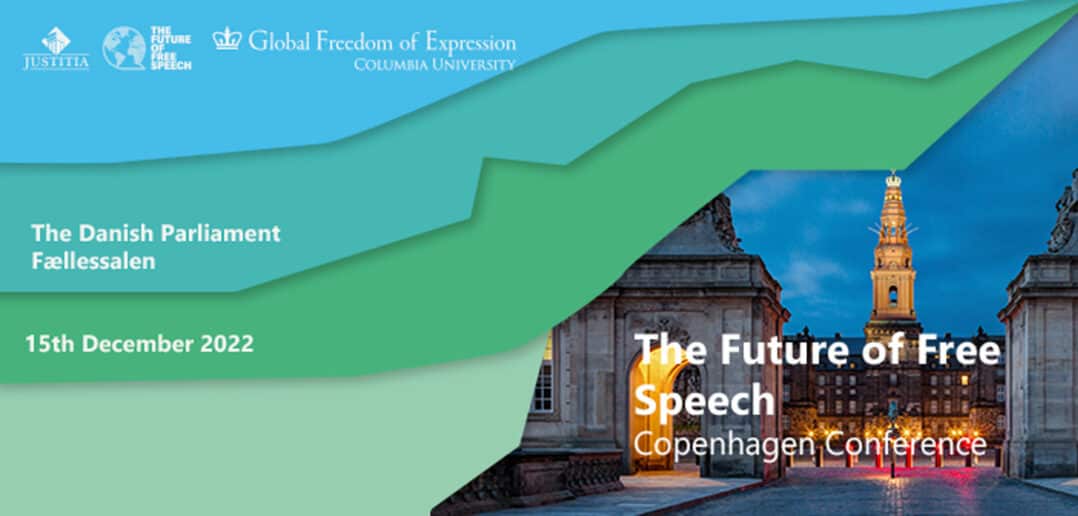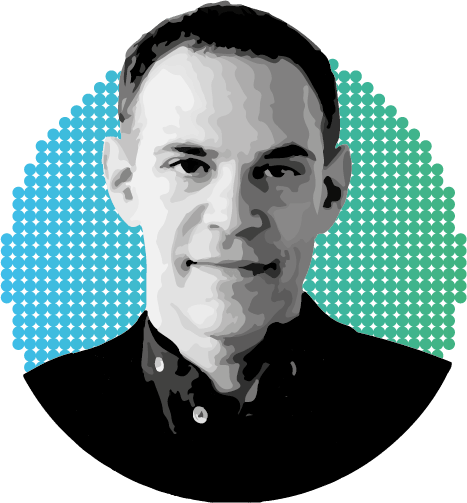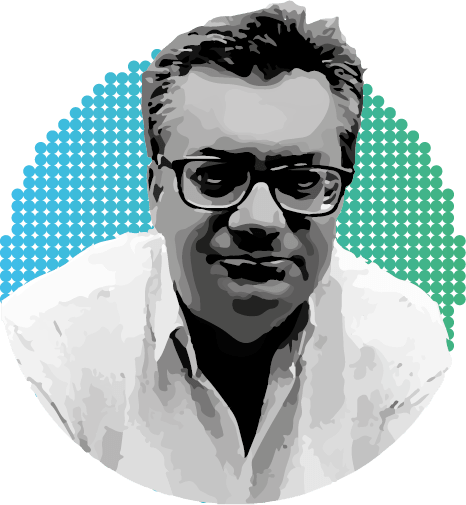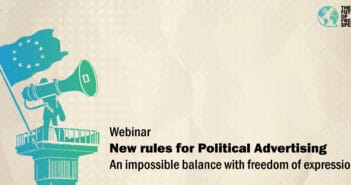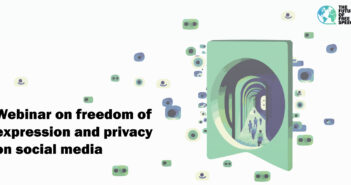“The Future of Free Speech”
Conference (In Person and Online)
15th December 2022, Danish Parliament – Fællessalen, Copenhagen
Justitia cordially invites you to take part in its upcoming conference on the future of free speech, which will mark the closing of phase 1 of the Future of Free Speech project. Participation is possible both online and in person.
Free speech is the bulwark of liberty; without it, no free and democratic society has ever been established or thrived. Free expression has been the basis of unprecedented scientific, social and political progress that has benefitted individuals, communities, nations and humanity itself. Millions of people derive protection, knowledge and essential meaning from the right to challenge power, question orthodoxy, expose corruption and address oppression, bigotry and hatred.
At the “Future of Free Speech,” we believe that a robust and resilient culture of free speech must be the foundation for the future of any free, democratic society. We believe that, even as rapid technological change brings new challenges and threats, free speech must continue to serve as an essential ideal and a fundamental right for all people, regardless of race, ethnicity, religion, nationality, sexual orientation, gender or social standing.
However, free speech has been on global decline for more than a decade. Left unchecked, this deterioration of free speech threatens individual freedom, civil society and democratic institutions as well as progress in science and philosophy. There are many reasons for the global decline in free speech, including the rise of authoritarianism on all continents. Even in open societies, the democratization and virality of online speech are increasingly seen as a threat rather than a precondition for well-functioning, free, tolerant and pluralist societies. Threats – both real and imagined – from hate speech, extremism, terrorism and disinformation have led to calls for stricter regulation of speech from both authoritarian and democratic governments, social media companies, individuals, and NGOs. To mention just one example, the recent coronavirus has led not only to a global public health emergency but also to a global censorship pandemic, as many governments scramble to suppress misinformation, while others have used the opportunity to grab even more power over both the press and online opinions. Such measures put both the value of and the right to free speech under pressure but also challenge defenders of free speech to re-examine, update and upgrade the arguments for why free speech matters. Historical lessons are crucial to understanding the value of free speech, but in a digital age, in which propaganda and disinformation can travel the globe in seconds, it is no longer enough to rely solely on tried and tested free speech arguments from previous eras.
In light of the above, our conference will bring together experts from tech companies, civil society, International organizations and academia to discuss burning questions about the future of free speech. To this end, we will look at global developments from around the globe explained, followed by a panel with a focus on online speech and the future of content moderation online.
The Project: The Future of Free Speech is a collaboration between Copenhagen-based judicial think tank Justitia, Columbia University’s Global Freedom of Expression and Aarhus University’s Department of Political Science. Through our project, we have brought an evidence-based approach to the burning questions raised by the principles and practices of free speech in an interconnected digital world.
Practical Details:
If you would like to participate in the conference please follow the links below. Admission to the conference is free.
Register for on-site participation
Register for online participation
For more information contact Natalie Alkiviadou at natalie@justitia-int.org
Program
Speakers:
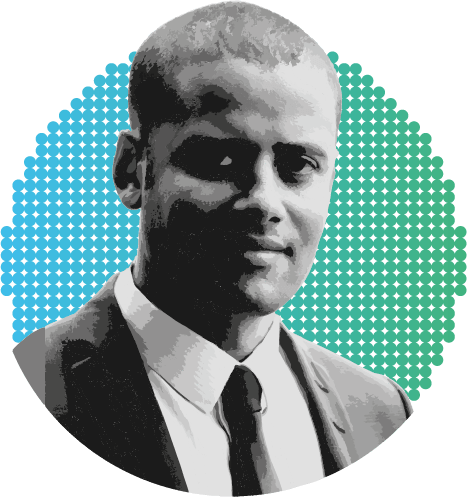 |
Jacob Mchangama | Founder and Executive Director, JustitiaJacob Mchangama is the founder and executive director of Justitia, a think tank focusing on human rights and a former Visiting Scholar at Columbia Global Freedom of Expression. He is a Senior Fellow at the Foundation for Individual Rights and Expression, member of the Forum on Information and Democracy’s Steering Committee for the working group on network accountability regimes, the Danish government’s independent Free Speech Commission, and a member of the steering committee of the World Expression Forum. Jacob has commented extensively on free speech and human rights in the media and academic journals including the Washington Post, the Wall Street Journal, The Economist, Foreign Affairs, Foreign Policy, Human Rights Quarterly and The Journal of Free Speech Law. He is the author of several books most recently the critically acclaimed “Free Speech: A History From Socrates to Social Media” (2022), and the writer and host of the podcast “Clear and Present Danger: A History of Free Speech”.
|
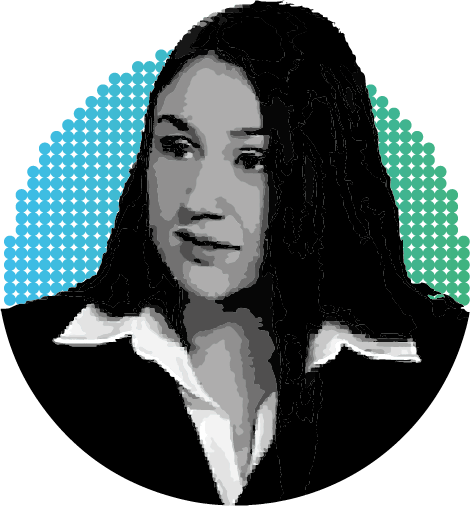 |
Anastasia GarinaMemorial, (Nobel Peace Prize Laureate) |
 |
Monika Bickert | Vice President of Content Policy at MetaMonika Bickert is Meta’s Vice President for Content Policy. Her global team manages the policies for what types of content can be shared on Meta platforms and how advertisers and others can interact with the site. Monika joined Facebook in 2012 as lead security counsel, advising the company on matters including child safety and data security. She assumed her current role in 2013. Earlier in her career, Monika served as Resident Legal Advisor at the U.S. Embassy in Bangkok, Thailand, where she specialized in Southeast Asian rule of law development and response to child exploitation and human trafficking. She also served as Assistant United States Attorney for 11 years in Washington, DC, and Chicago, prosecuting federal crimes ranging from public corruption to gang-related violence. Monika received a B.A. from Rice University and a J.D. from Harvard Law School. |
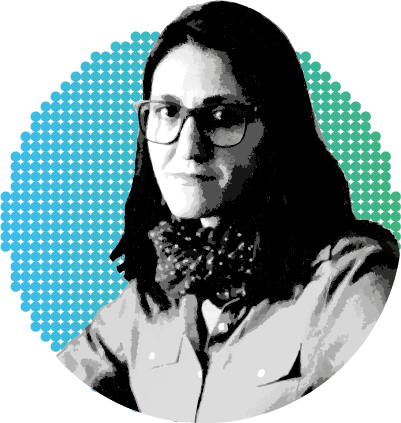 |
Galina ArapovaGalina Arapova is a media lawyer working in the field of freedom of expression and freedom of information in Russia since 1996. She is director and senior media lawyer at the Mass Media Defence Centre (Russia), a prominent NGO working on the freedom of expression and media protection. Galina has extensive experience in consulting Russian and international media as well as defending media outlets and journalists before domestic courts and the European Court of Human Rights. Before national courts, she defended hundreds of Russian media outlets and journalists including Novaya gazeta, Kommersant daily and international ones like The New Times, Deutsche Welle, Radio Liberty and more. Galina Arapova was awarded a number of media freedom awards, such as the special Freedom of Expression protection award by the Russian Union of Journalists and Anna Politkovskaya freedom of media prize “Camerton” for courage in media defence. She is a 2016 winner of “Human Right Award for Outstanding Contribution by a Legal Practitioner to Human Rights” awarded by the International Bar Association. Russian authorities designated the Mass Media Defence Centre as a foreign agent NGO. MMDC’s case before the European court is pending. In October 2021, Galina Arapova was the first Russian lawyer who was designated by Russian authorities as an (individual) foreign agent. |
|
|
Prof. Dr. Eric Heinze | Queen Mary University of London, LondonEric Heinze (Maitrise distinction, U. Paris; J.D. cum laude, Harvard; PhD cum laude, Leiden) became Professor of Law & Humanities at the University of London after publishing his first book entitled Sexual Orientation: A Human Right. He is currently serving as General Rapporteur on the Criminalization of Hate Speech for the Académie internationale de droit compare and was previously the Project Leader for the four-nation EU consortium Memory Laws in European and Comparative Perspectives (2016-19). He has been a Fulbright Fellow (Utrecht), DAAD fellow (Berlin), and Chateaubriand Fellow (Paris), as well as holding grants from the UK Nuffield Foundation and from Harvard University. Heinze has published eight books and has authored or been interviewed for over 150 scholarly and media pieces. His two most recent books are about free speech including The Most Human Right: Why Free Speech is Everything published this past April with The MIT Press, and Hate Speech and Democratic Citizenship published in 2016 with Oxford University Press. He has advised several inter-governmental and non-governmental organizations, including Amnesty International and the International Commission of Jurists. |
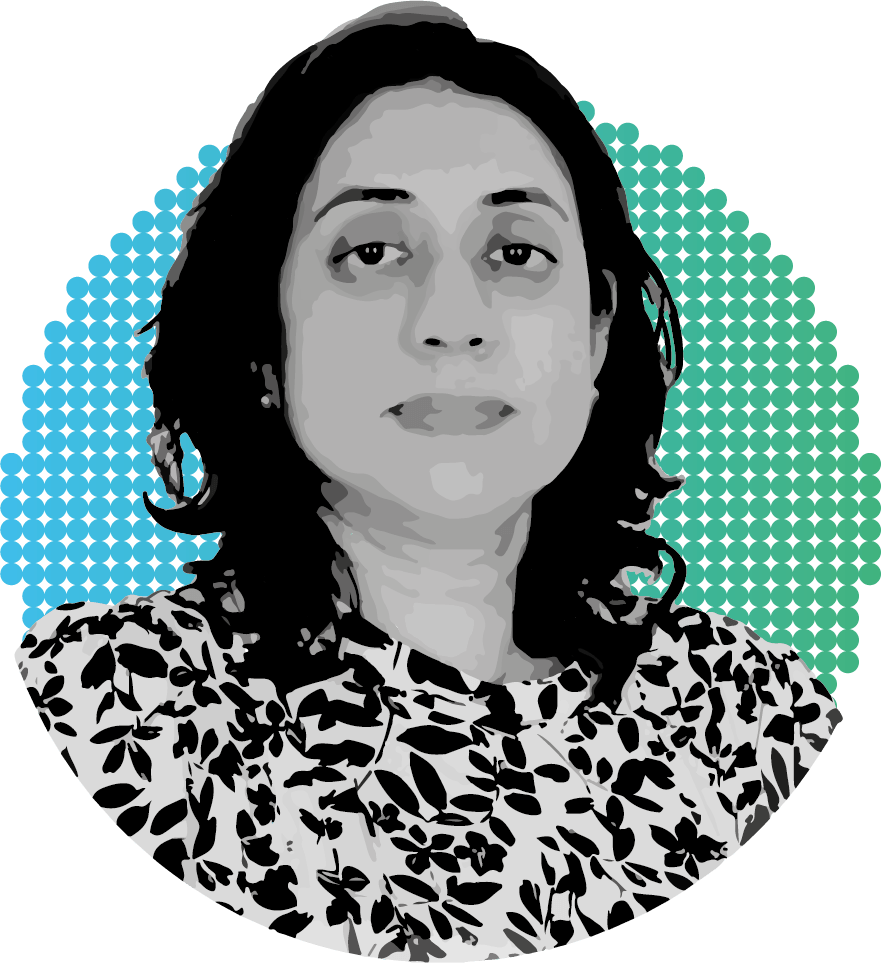 |
Ourveena Geereesha Topsy-SonooSpecial Rapporteur on Freedom of Expression and Access to Information in Africa, African Commission on Human and People’s Rights |
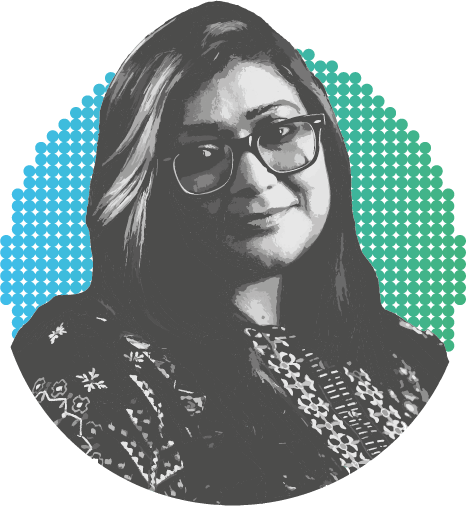 |
Nighat DadDigital Rights Foundation – Oversight Board |
|
|
Joan BarataStanford Cyber Policy Center |
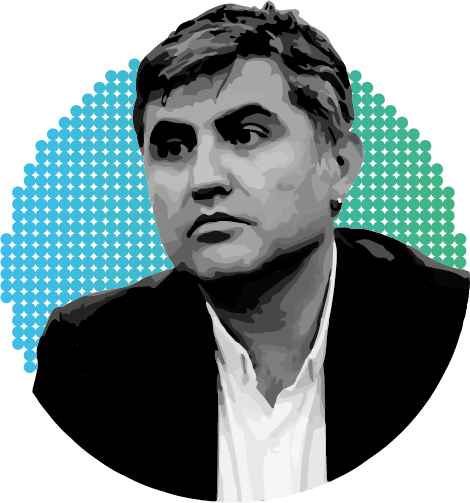 |
Kerem AltiparmakFreedom of Expression Association İFÖD – İfade Özgürlüğü Derneği |


